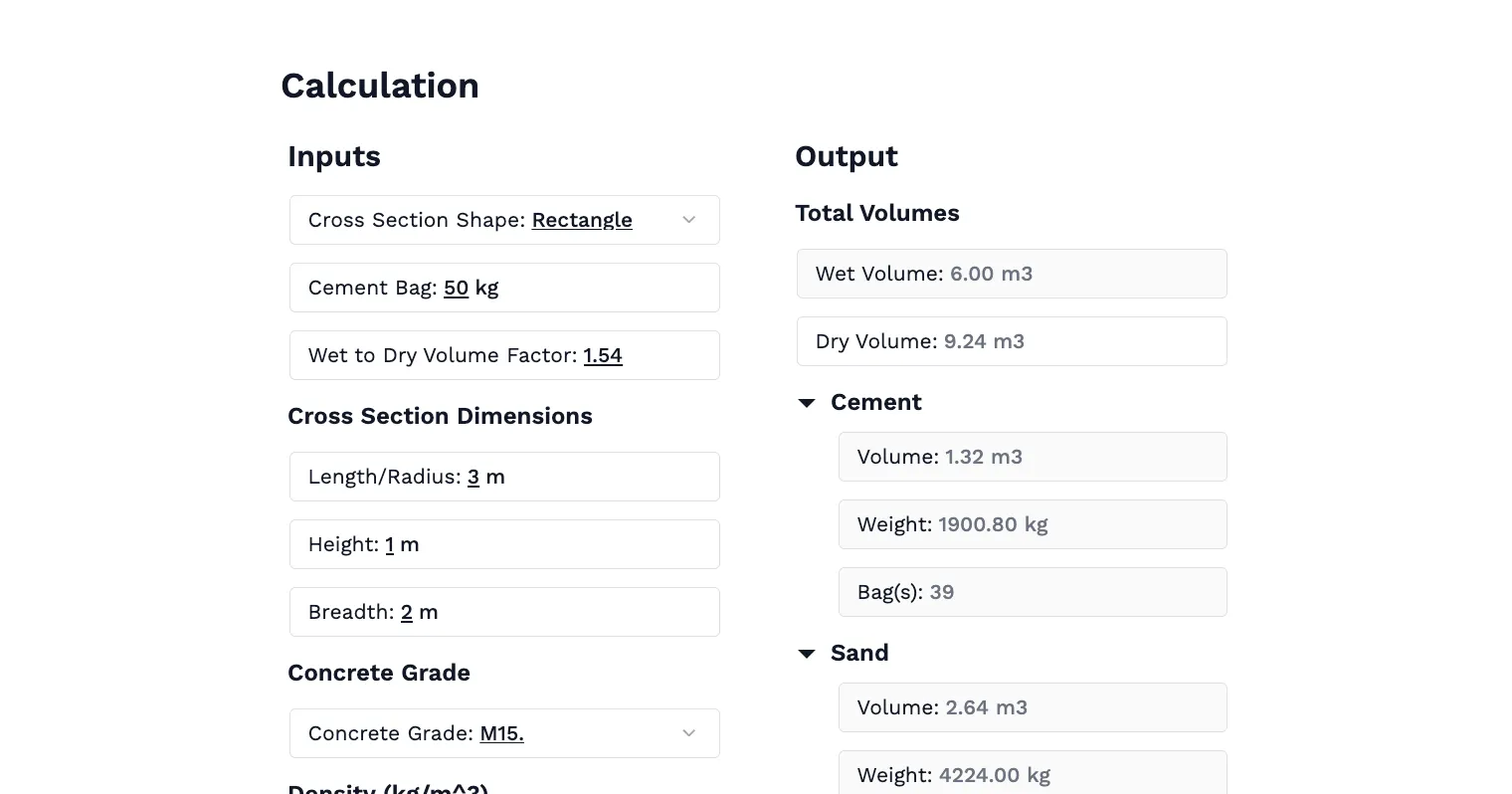Free Cement, Sand & Aggregate Calculator. Step-by-step, engineering-grade tool with downloadable report.

This template is not available yet. You can sign up and create it yourself!
Or let us know if you'd like to be notified when it’s ready:
About this calculator
The Cement, Sand & Aggregate Calculator tool allows you to quickly determine the quantities of cement, sand, and aggregate required for either a rectangular or circular concrete element. You can specify the grade of concrete you want to use and input the densities of the ingredients, making this tool flexible for different projects and material properties.
This calculator is for:
- Civil engineers who need to estimate material quantities for concrete structures.
- Contractors seeking quick feasibility checks on material requirements for concrete elements.
- DIY builders or students looking for a straightforward way to calculate material quantities for smaller concrete projects.
This tool can also be used for general feasibility checks by comparing different concrete grades and ingredient densities to evaluate material costs and availability. Alternative approaches to these calculations include using manual methods found in textbooks like Concrete Technology by M.S. Shetty or Design of Concrete Structures by Arthur H. Nilson, which cover in-depth material estimations and concrete mix designs.
Engineering templates
Common calculators
Design guides
Frequently Asked Questions
How does the concrete grade affect material quantities?
The grade of concrete represents its strength and mix proportion, which affects the amount of cement, sand, and aggregate needed. Higher grades require more cement to achieve the required strength.
What is the importance of knowing the densities of ingredients?
Knowing the densities of cement, sand, and aggregate is essential to ensure accurate volume-to-weight conversions, as this directly impacts the material quantities and the final concrete strength.
Can I use recycled aggregates in my concrete mix?
Yes, recycled aggregates can be used, but their properties may vary from traditional aggregates. This could affect the mix design and the final performance of the concrete, so adjustments in the calculation may be required.
Learn about the benefits of using CalcTree on engineering projects!









